Rear Disc Brake Pads Replacement 1500 Series
Caution: Refer to Brake Dust Caution in the Preface section.
Removal Procedure
- Raise and support the vehicle. Refer to Lifting and Jacking the Vehicle .
- Remove the rear tire and wheel. Refer to Tire and Wheel Removal and Installation .
- Using a open end wrench to hold the guide pin, loosen the guide pin bolt.
- Remove the guide pin bolt (1) from the brake caliper (2).
- Rotate the brake caliper (2) upward until it stops or rest on the caliper mounting bracket (5), or use mechanics wire to support the brake caliper.
- Remove the brake pads (3) and shims (4) from the mounting bracket (5).
- Using the appropriate tool, SLOWLY compress the caliper piston into the bore.
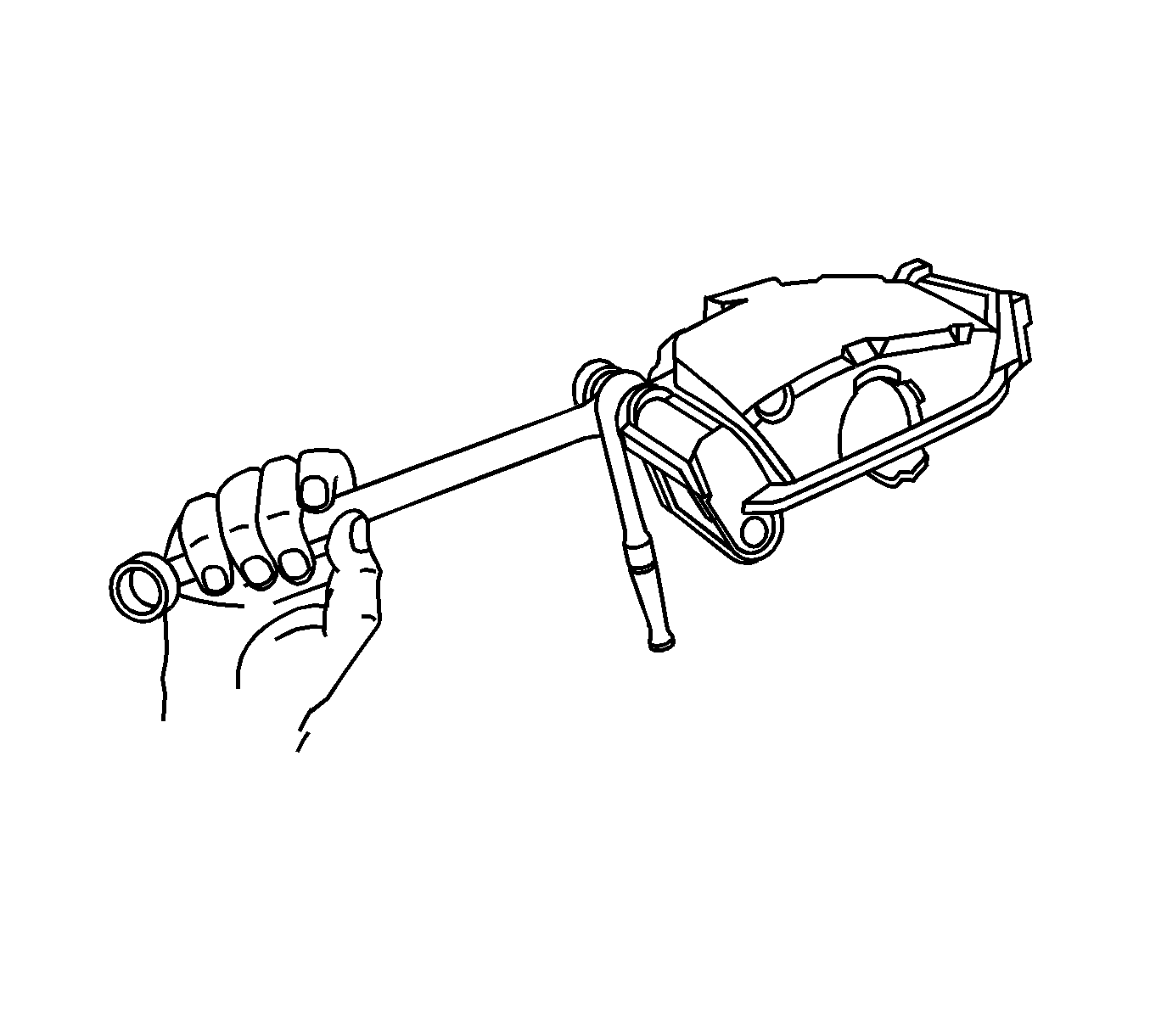
Important:
• DO NOT use any air tools to remove the guide pin bolts. Use hand tools only. • Install a open end wrench to hold the caliper guide pin line with the brake caliper while removing or installing the caliper guide pin bolt. DO NOT allow the open end wrench to come in contact with the brake caliper. Allowing the open end wrench
to come in contact with the brake caliper will cause a pulsation when the brake are applied.
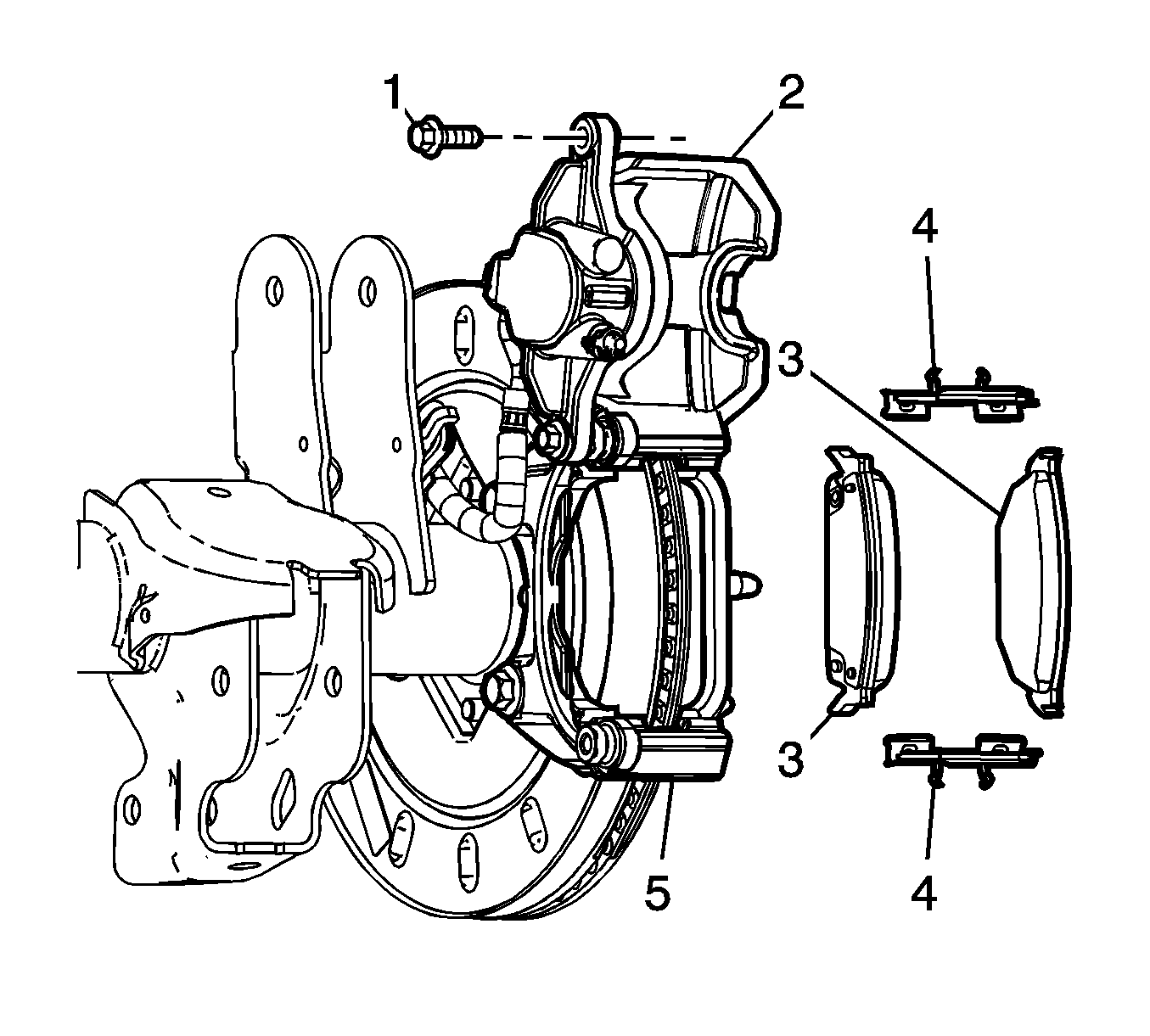
Important: If servicing just the brake pads, the brake hose does not have to be removed from the brake caliper.
Important:
• If removing the brake pads and shims to service other brake components, mark the position of the inner and outer pads and shims for the proper installation. • DO NOT re-use the old brake pad shims with new brake pads. Replace with NEW only.
Important: Perform the flowing service procedure only is replacing the brake pads.
Installation Procedure
- Install the shims (4) on the mounting bracket (5).
- Install the brake pads (3).
- Remove the mechanics wire if used, and rotate the brake caliper (2) into position on the mounting bracket (5).
- Install the NEW caliper guide pin bolts.
- Use a open end wrench to hold the caliper guide pin while tightening the guide pin bolt.
- Gradually apply pressure to the brake pedal.
- Slowly release the brake pedal.
- Repeat this procedure until a firm brake pedal has been achieved.
- Fill the brake master cylinder reservoir to the proper level with clean brake fluid. Refer to Master Cylinder Reservoir Filling .
- Install the tire and wheel. Refer to Tire and Wheel Removal and Installation .
- Burnish the brake pads. Refer to Brake Pad and Rotor Burnishing .

| • | Install the new brake pads. |
| • | Install the brake pads in relation to their original position if servicing other brake components. |
Notice: Refer to Fastener Notice in the Preface section.

Important:
• DO NOT use any air tools to remove or tighten the guide pin bolts. Use hand tools ONLY. • Install a open end wrench to hold the caliper guide pins in line with the caliper while removing or installing the caliper. DO NOT allow the wrench to come in contact with the brake caliper. Allowing the wrench to come in contact with the brake caliper
will cause a pulsation when the brakes are applied.
Tighten
Tighten the bolt to 108 N·m (80 lb ft)
Rear Disc Brake Pads Replacement 25/3500 Series
Caution: Refer to Brake Dust Caution in the Preface section.
Removal Procedure
- Inspect the fluid level in the brake master cylinder reservoir.
- If the fluid level is midway between the maximum - full point, and the minimum allowable level, no fluid needs to be removed from the reservoir before proceeding.
- If the fluid level is higher than midway between the maximum - full point, and the minimum allowable level, remove fluid to the midway point before proceeding.
- Remove the tire and wheel assembly. Refer to Tire and Wheel Removal and Installation.
- Compress the brake caliper pistons.
- Remove the brake caliper bolts.
- Remove the caliper from the caliper bracket and support with heavy mechanics wire or equivalent.
- Remove the brake pads from the caliper bracket.
- Remove and discard the anti-rattle clips.
- Inspect the caliper and caliper bracket. Refer to Brake Caliper Inspection .
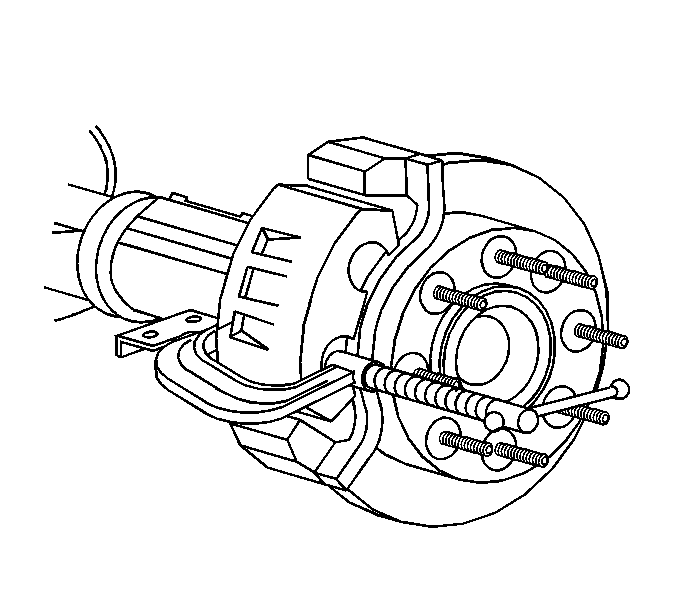
| 5.1. | Install 2 large C-clamps over the top of the caliper housing and against the back of the outboard pad. |
| 5.2. | Slowly tighten the C-clamp until the pistons are pushed completely into the caliper bores. |
| 5.3. | Remove the C-clamp from the caliper. |
Notice: Support the brake caliper with heavy mechanic wire, or equivalent, whenever it is separated from its mount and the hydraulic flexible brake hose is still connected. Failure to support the caliper in this manner will cause the flexible brake hose to bear the weight of the caliper, which may cause damage to the brake hose and in turn may cause a brake fluid leak.
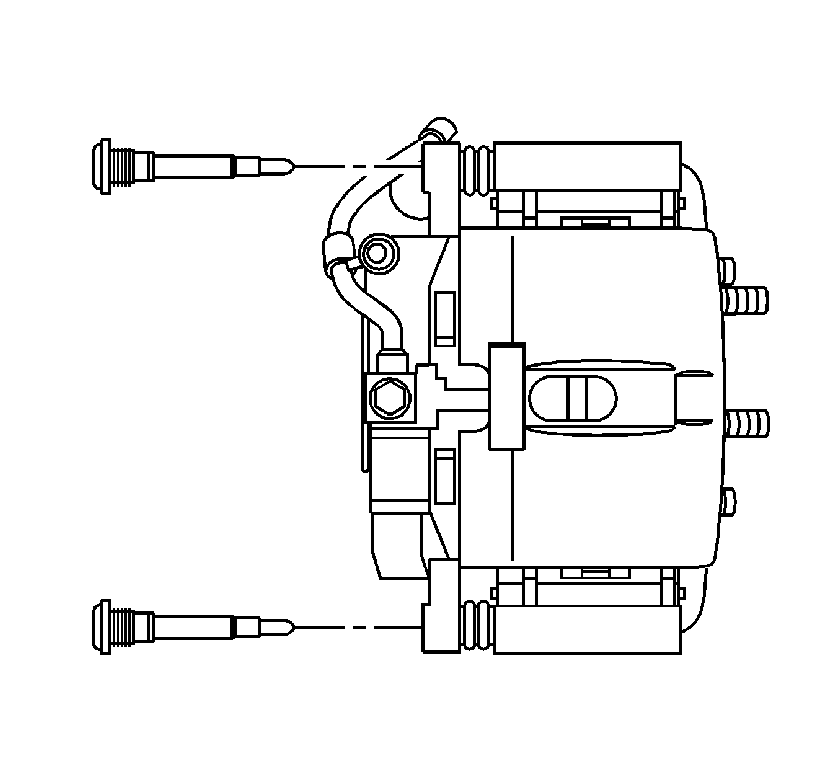
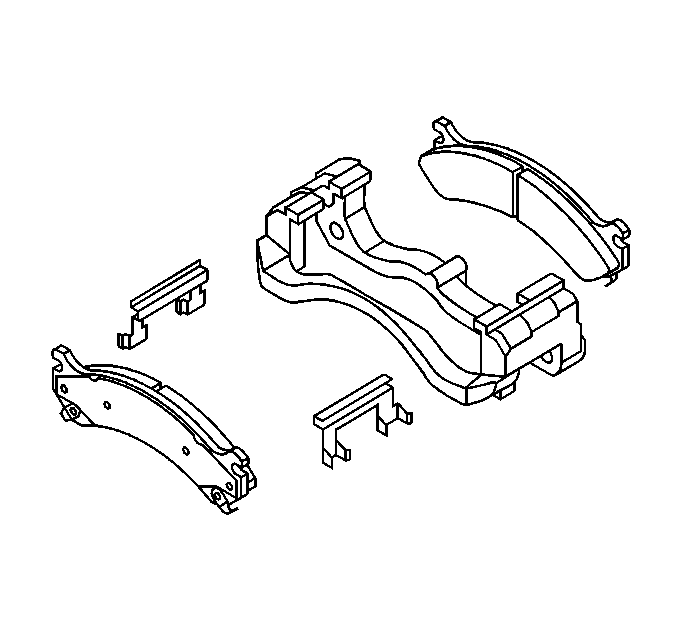
Installation Procedure
- Install the anti-rattle clips to the caliper bracket.
- Install the brake pads.
- Install the caliper to the caliper bracket .
- Install the brake caliper bolts.
- Install the tire and wheel assembly. Refer to Tire and Wheel Removal and Installation.
- Remove the safety stands.
- Lower the vehicle.
- With the engine OFF, gradually apply the brake pedal to approximately 2/3 of its travel distance.
- Slowly release the brake pedal.
- Wait 15 seconds, then repeat steps 8-9 until a firm pedal is obtained. This will properly seat the caliper pistons and pads.
- Fill the master cylinder reservoir to the proper level with clean brake fluid, if necessary. Refer to Master Cylinder Reservoir Filling.
- Burnish the pads and rotors. Refer to Brake Pad and Rotor Burnishing.


Notice: Refer to Fastener Notice in the Preface section.
Tighten
Tighten the bolts to 108 N·m (80 lb ft).
